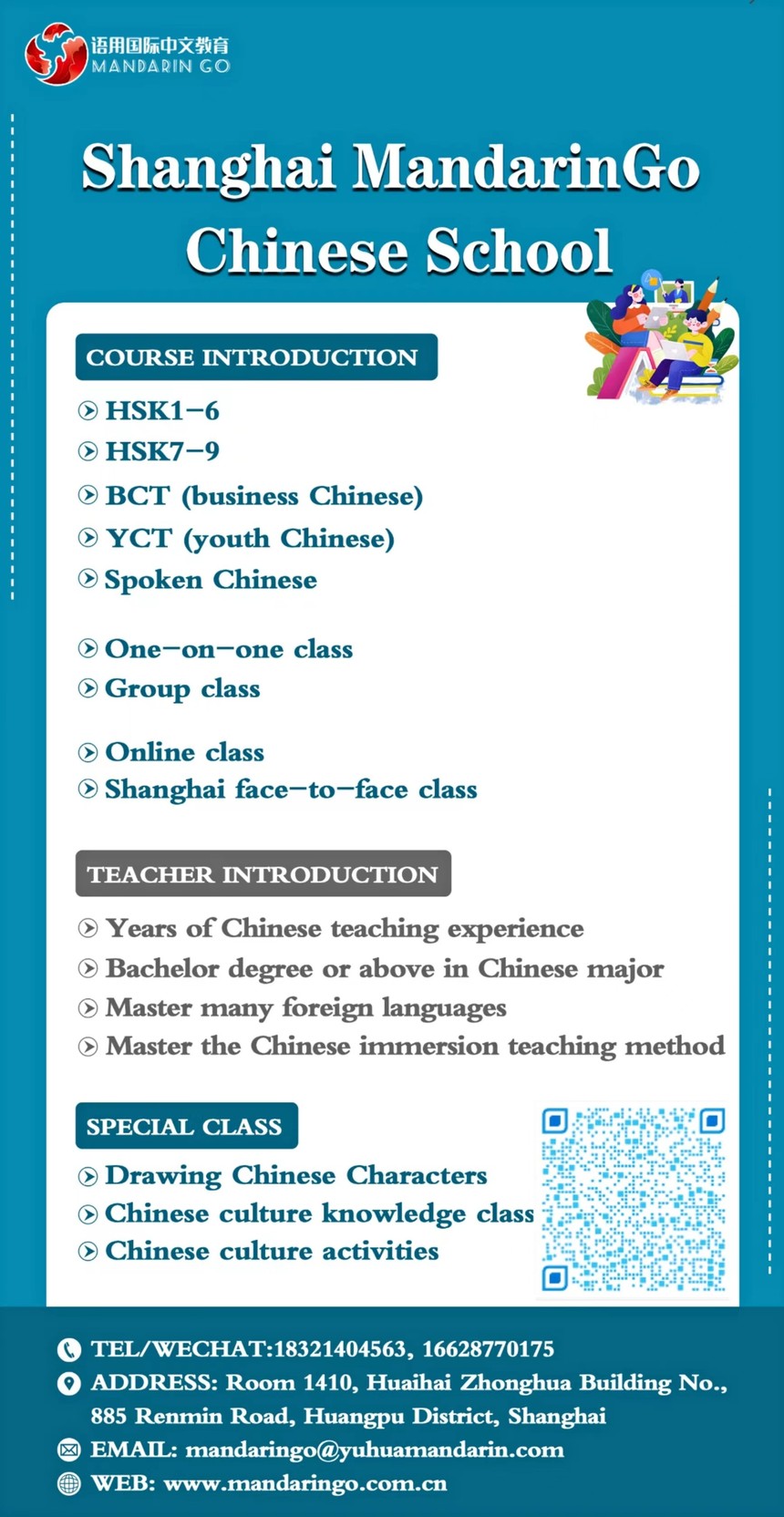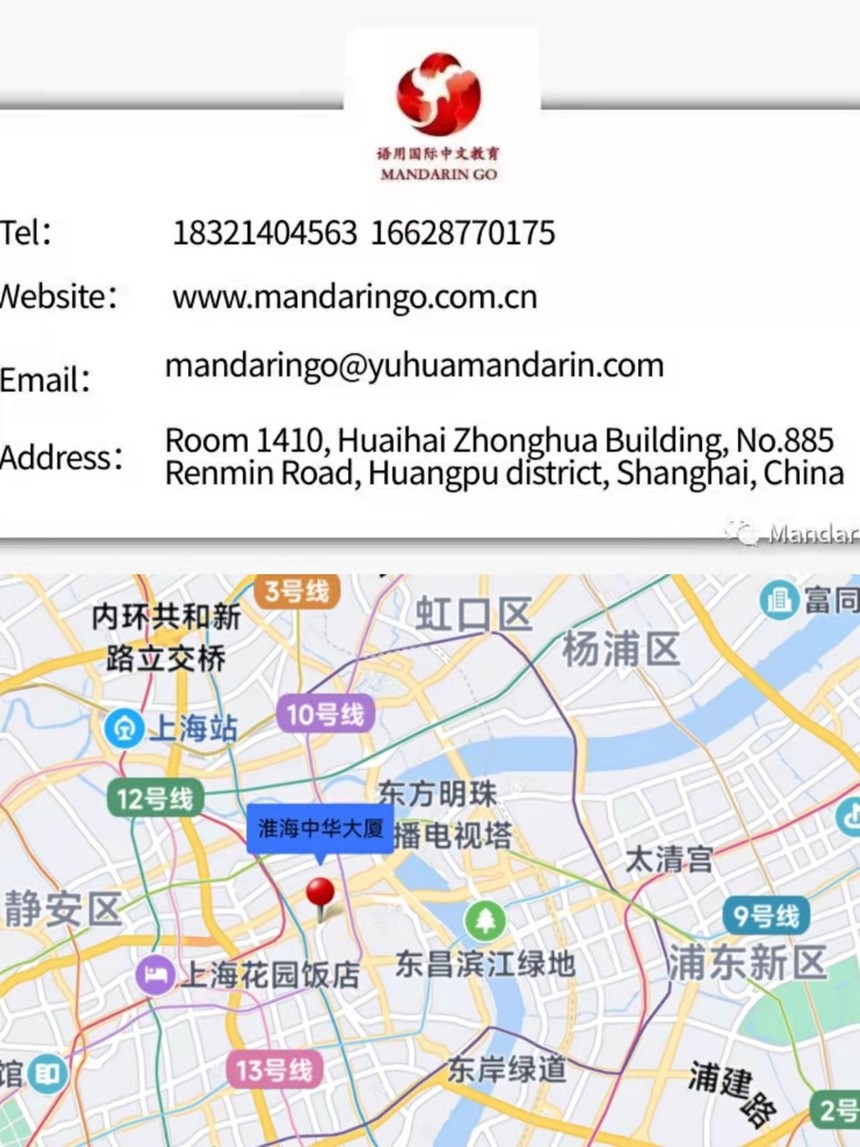Our Blog
|
Mandarin Go | The differences between"会huì”and能“néng”
Follow Us ☝ 1. 会 huì
能愿动词“能”一般用在动词前,与动词整体做谓语,表示一种能力或者可能。“能”还常用于疑问句式“能......吗?”中,表示请求、希望获得许可。例如: The modal verv“能” is usually used before a verb to form the predicate indicating an ability or a possibity. The interrogative sentence structure“能......吗?”is often used to indicate a request or hope for peimission. For example: 明天下午我能去商店。 Míngtiān xiàwǔ wǒ néng qù shāngdiàn.
我能进来吗? Wǒ néng jìnlái ma ? May I come in?
To learn more about Chinese and discuss it with Chinese teachers, book a free trial class with Mandarin Go 👇
|












